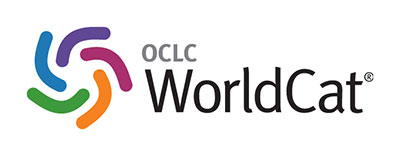Education and culture in times of Covid in Ecuador
towards an online education system
DOI:
https://doi.org/10.26871/killkanasocial.v8i1.1240Palabras clave:
Covid, ICT, Education, Pandemic, VirtualResumen
ABSTRACT
The objective of this article is to identify how the current educational system in Ecuador, as well as the world crisis of the Covid-19, propitiated a divergent path to the established traditional education in reference to the need of a distance modality supported by the new information and communication technologies, derived in the so-called online education, and with it, the new trends and formative needs that it demands to the new educational actors, teachers and students, to reach an adequate coupling in the teaching-learning processes mediated by technology. The aspect of cultural development is necessarily grafted in the conditioning factors of the new proposal, as an element of relevant importance that, as a transversal axis, supports the training for an effective insertion of the country's education in the so-called global village, which requires the management of various pedagogical, technical, technological, scientific and social skills in favor of an effective intercultural and global action, in a country that by its own characteristics is multicultural, multiethnic and plurinational.
Descargas
Citas
Castellanos-Reyes, D. (2020). 20 years of the community of inquiry framework. TechTrends, 64(4), 557-560. http://dx.doi.org/10.1007/s11528-020-00491-7
Collins, K., Groff, S., Mathena, C., & Kupczynski, L. (2019). Asynchronous video and the development of instructor social presence and student engagement. Turkish Journal of Distance Education, 20(1), 53-70.
De Agostini, G. (2021). Regreso a la Presencialidad: larga o corta vida. Killkana Social. Publicado: 29 diciembre 2021 en: Journal article, DOI: 10.26871/killkanasocial. v5i2.892
De Agostini. G. (2010). Totally "Online” High School for People at Educational Risk. Field Actions Science Reports, Vol.4. France. http://journals.openedition.org/factsreports/376
Gallagher, S. & Palmer, J. (2020). The pandemic pushed universities online. The change was long overdue. Harvard Business Review. https://hbr.org/2020/09/thepandemic-pushed-universities-online-the-change-was-long-overdue
Hughes, J., Kisa, Z., Sharp, D., (2021). Exploring teachers’ influence on student success in an online biology course. U.S. Department of Education. https://ies.ed.gov/ncee/edlabs/regions/ southeast/pdf/REL_2021056.pdf
Hwangji, L. (2020). Online learning: The meanings of student engagement. Education Journal, 9(3), 73-79
Jamieson, M. V. & Shaw, J. M. (2019). Student and instructor satisfaction and engagement with blended learning in chemical engineering design. 2017: Proceedings of the Canadian Engineering Education Association (CEEA17) Conference, Paper 40. https://doi.org/10.24908/pceea.vi0.13474
Krzyszkowska, K., & Mavrommati, M. (2020). Applying the community of inquiry e-learning model to improve the learning design of an online course for in-service teachers in Norway. The Electronic Journal of e-Learning, 18(6), 462-475. https://doi.org/10.34190/JEL.18.6.001
Michelle L. Rosser-Majors, Sandra Rebeor, Christine McMahon, Andrea Wilson Walden, Stephanie L. Stubbs, Yolanda Harper & Laura Sliwinski Smith (2022). Improving Retention Factors and Student Success Online. Online Learning Journal, Volume 26, Issue 2.
National Student Clearinghouse Research Center. (2019). Persistence & retention.https://nscresearchcenter.org/snapshotreport35-first-year-persistence-and-retention/
Núñez Moreno, M. S., & Martínez Chérrez, W. E. (2022). Las tecnologías de la información: su repercusión en el cuidado del medio ambiente. Conciencia Digital, 5(2.1), 6-20. https://doi.org/10.33262/concienciadigital.v5i2.1.2146
Paul, J. & Jefferson, F. (2019). A comparative analysis of student performance in an online vs. face-to-face environmental science course from 2009 to 2016. Frontiers in Computer Science, 12(1). 1-9. https://doi.org/10.3389/fcomp.2019.00007
Popescu, E., & Badea, G. (2020). Exploring a community of inquiry supported by a social media-based learning environment. Educational Technology & Society, 23(2), 61–76.
Rebeor, S., Rosser-Majors, M., McMahon, C., & Anderson, S. (2019, April). Social, cognitive, & teaching presence: Impact on faculty and AU’s diverse student body [Conference session]. TCC Worldwide Online Conference.
Smalley, A. (2020). Higher education responses to coronavirus (COVID-19). National Conference of State Legislatures. https://www.ncsl.org/research/education/highereducation-responses-to-coronavirus-covid-19.aspx
Tyrväinen, H., Uotinen, S., & Valkonen, L. (2021). Instructor presence in a virtual classroom. Open Education Studies, 3(1), 132–146. https://doi-org.proxylibrary.ashford.edu/10.1515/edu-2020-014
Xavier, M., Meneses, J. (2020). Dropout in online higher education: A scoping review from 2014 to 2018. Barcelona: eLearn Center, Universitat Oberta de Catalunya. https://doi.org/10.7238/uoc.dropout.factors.2020
Diaz Barriga, A. (2009). Pensar la didáctica. Buenos Aires, Amorrortu, Colección Agenda Educativa, 2009, 224 pp.: Amorrortu.
de Camilloni, A. R. (2010). La Didáctica de las ciencias sociales: ¿Disciplinas o áreas? Revista de Educación, 55-76.
Farfán. M (2020). Los desafíos de la Educación Superior Salesiana en el actual contexto de crisis por el COVID-19: animar, acompañar, recrear. Roma.
UNESCO, C. . (2020). La educación en tiempos de la pandemia de COVID-19. Santiago: CEPAL.
Lederman, D. (2020). The shift to remote learning: The human element. Inside Higher Education. https://www.insidehighered.com/digital-learning/article/2020/03/25/howshift-remote-learning-might-affect-students-instructors-and

Descargas
Publicado
Cómo citar
Número
Sección
Licencia
Derechos de autor 2024 Giancarlo Giorgio De Agostini Solines

Esta obra está bajo una licencia internacional Creative Commons Atribución-NoComercial-CompartirIgual 4.0.
Se autoriza la reproducción total y parcial, y la citación del material que aparece en la revista, siempre y cuando se indique de manera explícita: nombre de la revista, nombre del autor(es), año, volumen, número y páginas del artículo fuente. Las ideas y afirmaciones consignadas por los autores están bajo su responsabilidad y no interpretan necesariamente las opiniones y políticas del Consejo Editorial de la Revista Killkana Sociales ni de la Universidad Católica de Cuenca.
La Revista Killkana Sociales utiliza la Licencia Creative Commons de Reconocimeinto-NoComercial-CompartirIgual 4.0, que es la siguiente: CC BY-NC-SA 4.0 Internacional.









